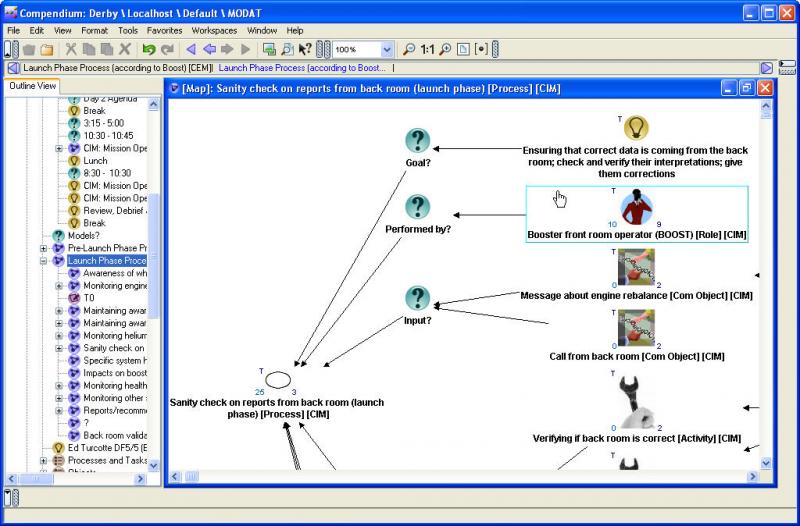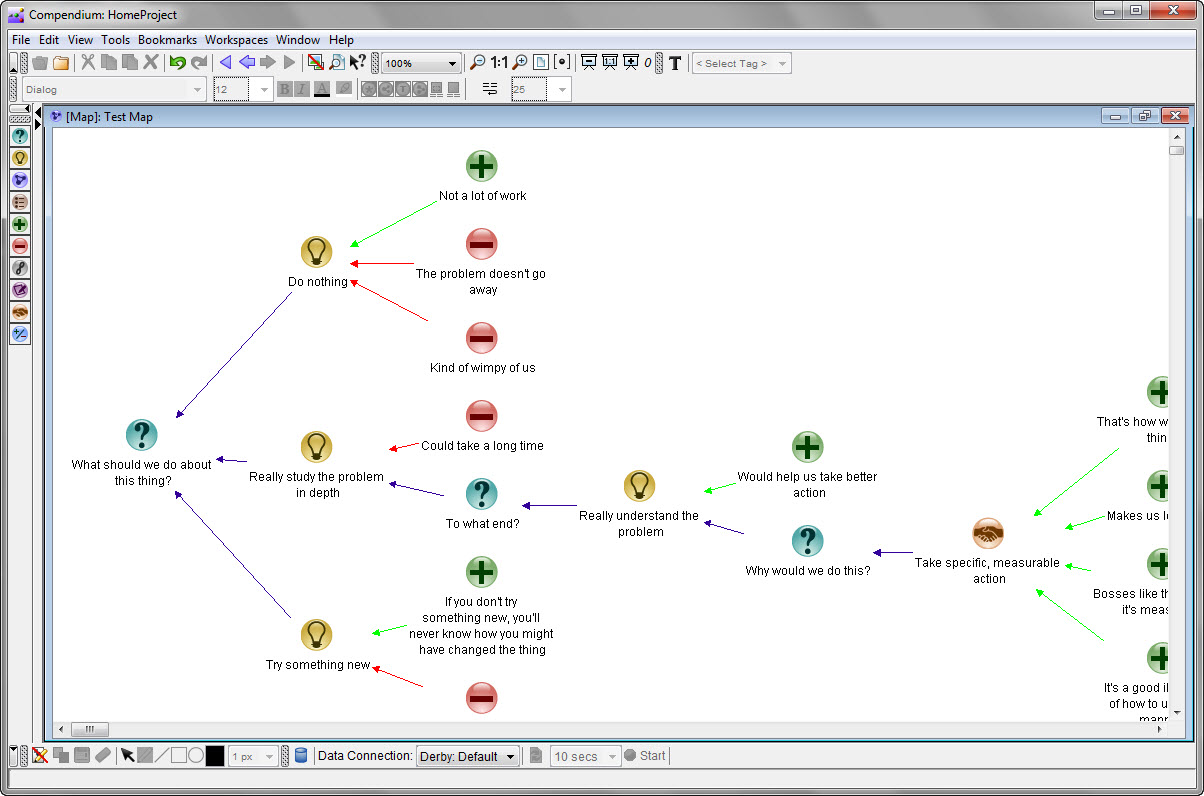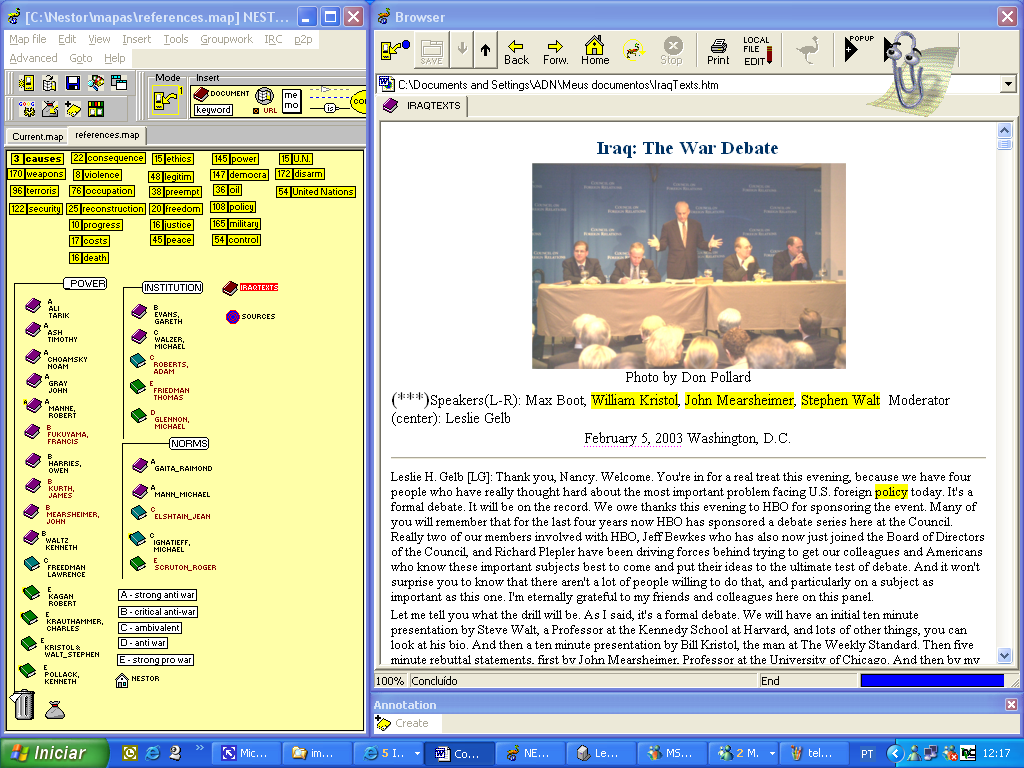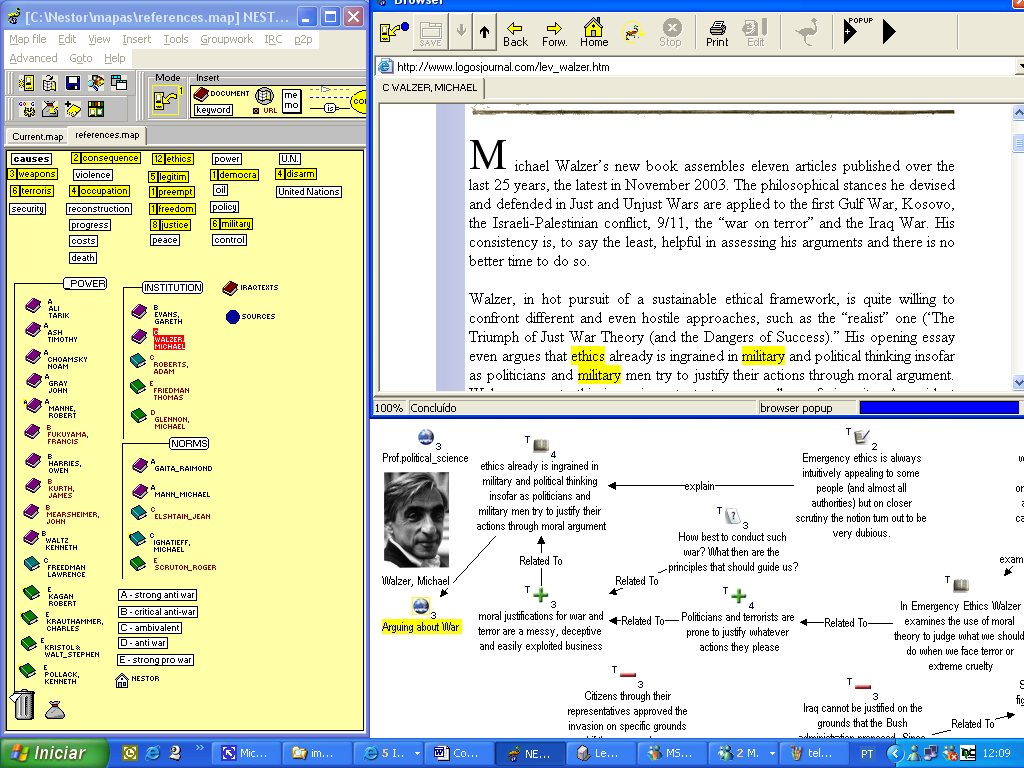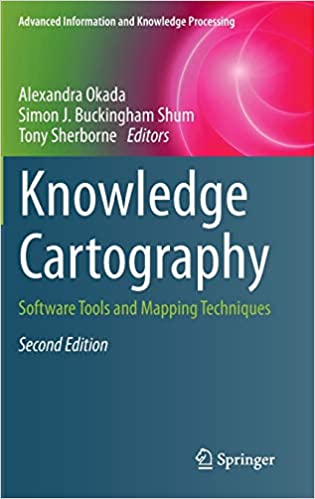Compendium vs Nestor - knowledge organization tools
Spent some time trying to figure out the key features of two knowledge-organization tools, Compendium and Nestor. Here is a an initial report on them..
Compendium
http://compendium.open.ac.uk/institute/ Compendium has a database in the background so all the searches are faster and more efficient, plus it is strongly based on argumentation theory. That means that you can easily map different positions in relation to their role in an argumentation, and then use this structure to retrieve things like "who supports/opposes what"
Nestor
http://www.gate.cnrs.fr/~zeiliger/nestor.htm Nestor instead links browser information into a concept map. It lets u re-organize web-material very efficiently, export in html, annotate portions of the material. Seems very well suited for doing online research.
See also
A lot of useful information on such topics can be found on the 'Knowledge Cartography' book.
Cite this blog post:
Comments via Github:
See also:
2017
paper Using Linked Open Data to Bootstrap a Knowledge Base of Classical Texts
WHiSe 2017 - 2nd Workshop on Humanities in the Semantic web (colocated with ISWC17), Vienna, Austria, Oct 2017.
2012
Digital Humanities 2012, Hamburg, Germany, Jul 2012.
2010
paper How do philosophers think their own discipline? Reports from a knowledge elicitation experiment
European Philosophy and Computing conference, ECAP10, Munich, Germany, Oct 2010.
2007
paper Capturing Knowledge About Philosophy
Fourth International Conference on Knowledge Capture (K-CAP07), Whistler, BC, Canada, Oct 2007. pp. 47-54
paper AquaLog: An ontology-driven question answering system for organizational semantic intranets
Journal of Web Semantics, Sep 2007. Vol. 5, 2, (72-105), Elsevier
2006
2003
paper Theory of Knowledge in the Postfordistic Society
Undergraduate degree thesis in italian (kindly published as a white-paper by ItConsult SRL), Universita Ca' Foscari, Venice, Italy, Sep 2003.
